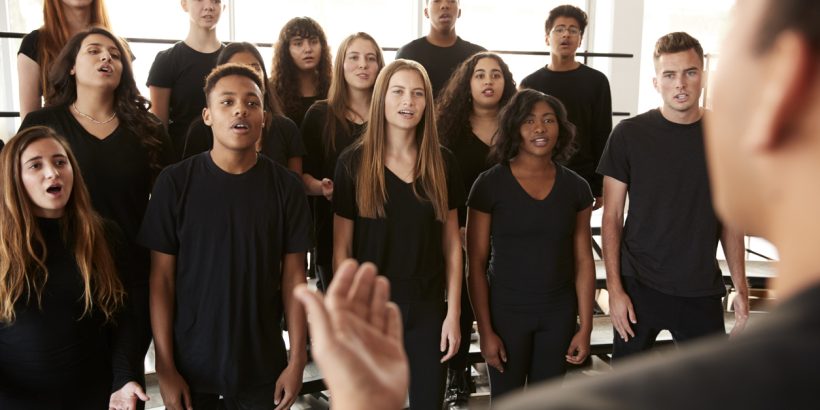Study day report: Choral Singing and the Transnational
11 April 2025, Scottish Music Centre
Report by Ashley Holdsworth Quinn
A Study Day, or more accurately, a day of singing interspersed with papers and presentations on the broad theme of transnationalism and migration, took place at the hospitable Scottish Music Centre in Glasgow at the start of April. 26 delegates from the Republic of Ireland, Singapore, Lithuania, Scotland and England participated in person, and two scholars from Italy and Venezuela / United States, unable to travel for reasons of health or political necessity, provided pre-recorded contributions.
Keynote speaker Friðrik (Frikki) Walker, Director of Music at St Mary’s Episcopal Cathedral, Glasgow, set the tempo for the day. Part singing session, part lecture, Walker deftly introduced Icelandic folk music, includings its very particular vocal styles to the group, and outlined its influence on his own practice as a composer of Icelandic heritage permanently resident in the United Kingdom.
A core theme of music as a facilitator of encounter and exchange between migrating and host communities echoed throughout the day. Marina Rossi (Univerity of Trento) presented the encouraging case study of Alpha, a Guinean refugee in Italy, who found community and employment as a musician through his membership of a local choir specialising in songs of Italian working people. Singaporean composer Kenneth Tay (Royal Conservatoire of Scotland) discussed his ongoing research and compositional practice which utilises musical idioms from Southeast Asia in a manner accessible to the choirs active in Scotland, where he currently lives. Intended as a site of cultural exchange, Tay’s corpus of work presents a subtle challenge to Eurocentric musical norms and invites dialogue between liturgical musical traditions. Róisín Blunnie and Laura Shiels (Dublin City University, project supported by Erasmus+) led a lively participatory workshop of newly composed canons (rounds) designed to teach a variety of musical concepts in an accessible and engaging way. The teaching materials are available online, and the group confirmed they are great fun to sing (https://kodalyhub.com/presto).
A second theme of music as memory, or music as repository of culture, was evident in some of the other presentations. Laura Silva (Ohio University), in an online discussion with the Study Day convenors, introduced her recent composition Vida Atrapa (A Trapped Life). Written as a response to Venezuelans tragically shipwrecked while seeking a better life abroad, Silva’s work uses both English and Spanish text, and a specifically Venezuelan merengue rhythm (in 5/8) to memorialise people who have perished taking a path she herself might have found herself travelling. Ashley Holdsworth Quinn (University of Glasgow) presented puzzling document found during archival research: a Russian song lyric translated into Latin, which suggests the use of Latin as a common language of cultural exchange active in Europe as late as the nineteenth century. Developing the idea of common languages, Kotryna Starkutė (Independent Scholar) concluded the day with a most enjoyable sing-through of music from imagined or no longer extant communities; Esperanto songs from Japan, and folklore from the former Prussian empire, now Lithuania.

